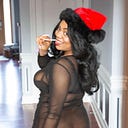Member-only story
Recently, Facebook and Twitter have both made headlines for decisions that we made by their executives on policing the language of Donald Trump. Twitter has made the decision to put warnings on some of Trump’s tweets, while Facebook CEO has made the decision not to do so nor fact check political ads and posts- despite Facebook’s Community Standards being clear on calls to violence and hate speech. Facebook’s founder, Mark Zuckerberg, says that he’s “uncomfortable being an arbiter of truth”.
As a Black woman who has been a user of Facebook since I was a sophomore in high school- I have often run afoul of Facebook’s speech policing systems. I would say that I have been to Facebook jail more than 100 times, often for 30 days at a time, for the simple act of expressing anti-racist, anti-sexist, or anti homophobe/transphobe sentiment or think pieces on social constructs that are often harmful to myself. Most times that I was placed in “Facebook jail” it was for the act of defending myself against racists, sexists, homophobes and transphobes who would take it upon themselves to harass me- often from several fake profiles. Facebook has forced me to confirm my identity MULTIPLE times due to several fake profiles reporting my profile as fake as an effort to silence my voice.
Whenever I reported fake accounts or those who were harassing me, I would be told that they were not against Facebook’s community standards.
As an LBGT+ Black woman who was once banned for hate speech for telling a white man…
